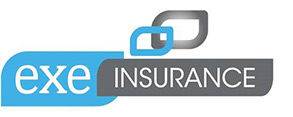For many business owners and fleet managers, making sure your fleet is adequately insured is usually one of your biggest expenses as a company. Therefore, it’s crucial you find the right cover for the best price.
Over the past couple decades, huge global changes such as globalisation, digitalisation and the rise of the internet have had a significant impact on fleet insurance premiums, which in turn leads to a noticeable impact on the amount of profit your businesses makes. It’s important to keep up to date with the global trends to know how you can keep your premiums as low as possible, saving you money in the long run.
Here are five current global trends which are set to impact your fleet insurance premiums.
1) Continued focus on driver behaviour and safety
A focus on reducing the number of car accidents, injuries and fatalities on the road has been on the Government’s agenda for the past couple decades. Governmental policies and campaigns have caused the number of vehicle accidents to fall significantly in the last few years.
Because of this, the next development in fleet management is likely to be focused on driver behaviour and safety. Driver safety programmes are being widely implemented as a way of reducing the total premium cost and prevent avoidable accidents on the road.
2) Fleet telematics for improved vehicle insight
Fleet telematics have been around for while now and are used in both motor trade insurance in addition to fleet to encourage safer driving practices and reduce policy prices. These tracking devices are hard wired into your vehicle to record and transfer information about driving patterns, CO2 emissions, the driver’s movements, traffic, and congestion.
Having telematics installed into your fleet will allow your company to measure and keep on track with company safety targets, as well as identify higher risk areas of the fleet and high-risk drivers.
3) Accident and claims management
Insurance costs consider much more than just the cost of repairing or issuing a new vehicle should there be an accident. Fleet insurance also covers you for the medical and legal bills that may arise from a road accident. Generally, these bills are rising faster than the rate of inflation, meaning that effective claims handling and optimised accident management will be more even more important in the fleet insurance industry.
4) Stricter regulations
In 2016, the new European ‘Solvency 2’ regulation came into effect to regulate the insurance industry. This regulation stipulates the minimum capital requirements based on the risks insurance companies carry. This could lead to higher insurance premiums as companies try to maintain their return on equity.
5) New mobility solutions
With traffic and congestion rising more and more each year, people are looking towards new forms of mobility such as car sharing. This is also taking place within the fleet industry, with more businesses looking to pool their company vehicles and offer drivers a set monthly allowance for travel costs, or the option to lease cars on demand.
Over the next decade, this could lead to insurance policy pricing being dependant on a way in which a vehicle is used, e.g. annual mileage, user, location, as opposed to insuring a vehicle itself.
How can your business prepare for these changes?
There are many ways you can keep on top of these changes and keep your insurance premiums as low as possible.
For further advice, come and speak to the experts! Email us on info@exe-insurance.co.uk or call 01392 797 733.





